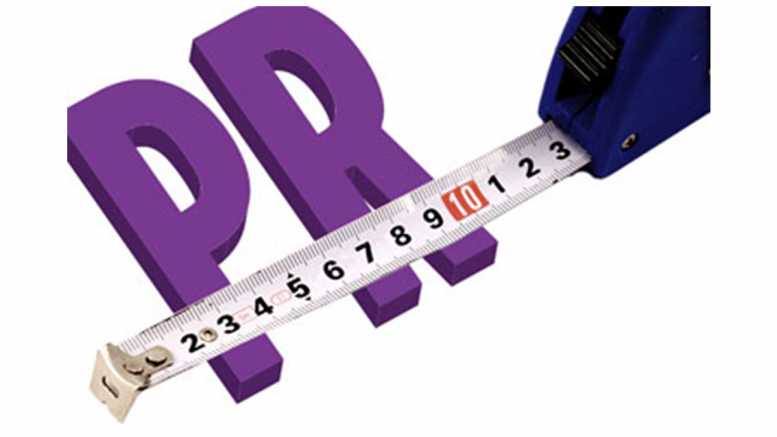During a general banter with a few senior communicators – a good mix of PR consultancy and in house folks, recently, the topic somehow veered towards PR deliverables. Everyone one was kind of agreeable to the fact that PR imperatives should be aligned to business goals and the efforts should be “quantified”, etc. etc.
Various PR imperatives were discussed and I was happy that for a change we were not talking about AVE’s and photographs on front page! On the way back home, I kept pondering on how much thought leadership exists and even if half of what we discussed that evening had to become a reality, a significant chunk of our measurement challenges would vanish! Unfortunately, it is generally easier said than done. There are multiple impediments if one tries to prove PR effectiveness or contribution by just quantifying the potential PR outcomes. Here’s my candid view on the subject:
- The outcomes approach becomes a bit ambiguous as business outcomes are generally the result of efforts by multiple functions. Going forward, it is more and more evident that Public relations work will transform more into earned, owned and paid media generation. PR professionals will find themselves increasingly doing work that transcends the traditionally rigid boundaries of earned, owned, or paid media. Trying to pin point the contribution of one particular genre is not only difficult, it is preposterous.
- Lack of easily available statistical techniques and measurement models that can help drive PR strategy is another challenge. I reckon majority of PR folks do not have statistical background and people who can do mathematical modelling do not have an orientation around the nuances and role of PR in an overall communication matrix.
- Evaluating PR using purely quantitative methods does seem to be laced with lacunae. Parameters like perceptions, brand loyalty, feelings, engagement etc. are best measured qualitatively. Quantifying something that is incorporeal is like trying to cut a tree with a shaving blade!
- PR is a very dynamic process, involves multiple variables and most often outcomes cannot be predetermined with a high level of confidence. So evaluating outcomes without any firm pre-determined goals (as in a sales target, based on statistical forecasting) may just seem like a retrospective performance review of tasks carried out. More so, if there are no benchmarks, they would be all the more useless.
PR profession hence, finds itself fumbling when it comes to establishing uniform, universally accepted measures which translates in to the larger question of how do we demonstrate value add towards the organisations growth. Hence, it is just a pity that most of the times ROI of millions of dollars spent on advertising are never questioned the way ROI on a fraction of that amount spent on PR is.
The Barcelona principles that have been recently updated have also made certain changes. I personally like the fact that when the communications environment is becoming integrated, it is all the more important to make the measurement integrated across tactics and channels. The PR channel would not flourish in a silo, neither would its measures. The committee has also reinforced the focus on qualitative measures that add context towards understanding the reasons behind the quantification. Advertising value equivalent (AVE) is still quite prevalent in the business as it is a measure that creates a feeling that PR is delivering but in reality does not measure the real value that PR can delivers. Even if I personally do not advocate AVE’s, I reckon, it’s going to take a lot of time for us to move away from this instant gratification.
While I fully agree with the seventh principle viz. “measurement and Evaluation should be Transparent, Consistent and Valid”, my favorite is the principle number one. It states that “Goal setting and measurement are fundamental to communication and public relations”. I cannot agree more.
The question then is, how many of us actually do robust goal setting before every campaign? Do we set objectives before every new PR blitz? If we do, then I feel, ROO (Return on Objectives) would be a much more significant measure than a vague ROI for PR. How can one measure just the PR ROI when the final organisational goal achievement could have been basis multiple approaches of communications, factors and other functions. There is a need to change the terminology. ROO can be that twist that can raise the bar and respect for PR. So next week, the topic is obvious! ROO – return on Objectives!






Be the first to comment on "The obsession for outcomes v/s effective goal setting!"